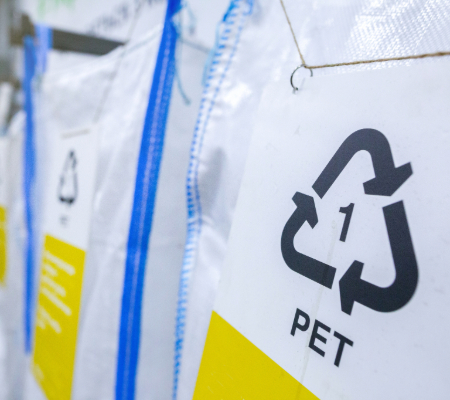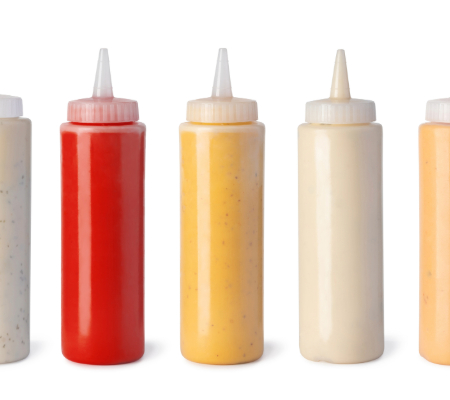think 4D, a brand of Friesens Corporation, is committed to the environment, striving to minimize our ecological footprint by making the best use of all our resources. We use our resources as carefully as possible – reusing and recycling whatever we can. Any waste that leaves our plant is recycled in such a manner that it can be used again.
Reduction in waste is apparent in the way we manufacture our products. Following is a breakdown of three products that are used in the packaging process and are either completely recyclable or have the propensity for improvement as advances are made in the recycling and composting industry.

PET (Polyethylene terephthalate) – PET is a versatile and energy efficient material that is both strong and lightweight. Because of its advantageous properties, it is used for a wide variety of applications such as food and beverage, personal care, the health care industry, and pharmaceuticals. Partial deconstruction of PET can also lead to its use in other applications owing to the properties that make it favorable as a homopolymer, namely high strength and near ideal thermal properties which has found a use in epoxy resins, polyurethanes, and unsaturated polyesters.
PET is recyclable and highly sustainable. It can be recovered and recycled again and again, and the material reused, through a series of special washing processes or by a chemical treatment to break down the PET into its raw materials or intermediates, which are then purified and converted into new PET resin.
Note: PETG (with glycol) has unique characteristics in that it is less brittle, more pliable, has better shock resistance and better suited to higher temperatures than PET alone. It is also easily recyclable although it is necessary to remove the glycol first as PETG has a lower melting point and the two materials cannot be processed together. For example, if some PETG gets into the PET recycling stream, it will melt first, causing clumps of sticky residue that will clog up the equipment. If separated though, clean PETG is completely recyclable.

Low Density PET (LDPET) – LDPE has the simplest structure of all the plastics, making it easy to produce. A very clean and safe plastic, LDPE is also found in household items like plastic wrap, frozen food containers and squeezable bottles. More recycling programs are beginning to accept LDPE plastics as it allows for easy sorting at recycling facilities in the sedimentation tanks. Plastic is melted to eliminate contaminants and then the material is fashioned into thin plastic sheets, which the recycling company will sell to manufacturers. The degradation in the material makes LDPE useful in other applications, such as treating carpet, garbage cans, paneling, furniture, flooring, and bubble wrap.
PLA (Polylactic Acid) – PLA is the most widely used plastic filament material in 3D printing and has become a popular material due to it being economically produced from renewable resources such as corn starch and vegetable oils. In theory, PLA should be easily recycled, or composted industrially however, due to the lack of infrastructure, it is difficult for companies to support this vision or plan. According to a biodegradability standard, PLA is said to decompose into carbon dioxide and water in a “controlled composting environment” in fewer than 90 days. Unfortunately, this cannot be done in a backyard composting bin, but rather, a large facility where compost—essentially, plant scraps being digested by microbes into fertilizer—reaches 140 degrees for ten consecutive days. So, even though corn plastic is “biodegradable” very few consumers have access to the sort of composting facilities that can make that happen. So, in thinking about the future of plastics, one could say that PLA products are “ahead of their time”: a biodegradable product that is simply waiting in queue for the recycling/compost industry to catch up.
Have more questions about the sustainability of shrink sleeves, or about think4D’s commitment to sustainability? Reach out and we’d be happy to chat.
